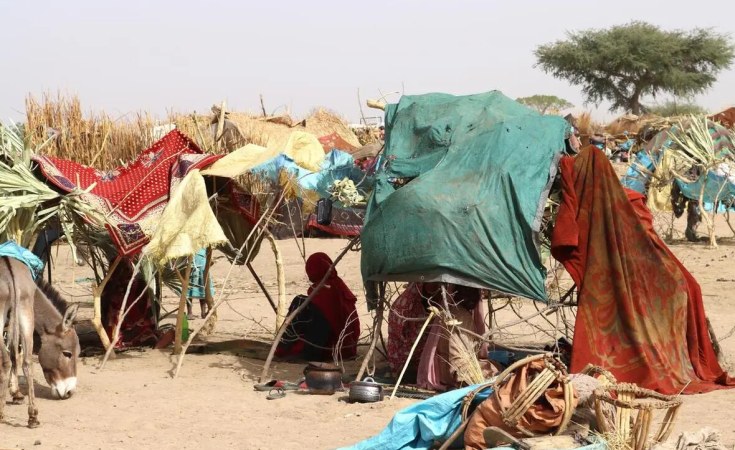Since April, more than 170,000 people have fled Sudan across the Chadian border, according to the UN refugee agency UNHCR. As the conflict in Sudan enters its 13th week with no resolution in sight, the agency's staff in Chad only foresee more people coming.
UNHCR's Representative in Chad, Laura Lo Castro, regularly travels from the capital Ndjamena to the refugee camps at the border with Sudan.
She told RFI English that the UNHCR "just received a new influx of people fleeing incredible violence".
"First we hosted mostly women and children, whose house had been burnt in the fighting," she explained. "Then, since the killing of the governor of West Darfur, mid-June, lots more people crossed the border, toward the town of Adré, from El Geneina in Darfur, including men from Masalit tribes, who reported being systematically targeted."
El Geneina, the capital of West Darfur state, has seen some of the worst violence against civilians.
West #Darfur refugees who recently fled to Chad told RD of more horrors in El Geneina. One saw 20 children being killed by #RSF and thrown into the river. Bodies are scattered everywhere as 8,000+ have been killed in what many describe as #genocide#Sudanhttps://t.co/2Hk33ti3DQ-- Radio Dabanga (@RadioDabanga) July 3, 2023
'Breaking point'
Hardly any humanitarian assistance has reached Sudanese refugees in Chad since May, placing pressure on limited local resources.
The city of Adré has become a form of refugee camp, according to Lo Castro.
"There is no food to buy in markets around Adré," she said. "The government is helping. Chad has an incredible tradition of hospitality, but the area is at breaking point."
She told RFI English that the priority is to create three designated camps inside Chad, where the refugees would be safer, and where UN agencies can build better facilities to receive them and help them to settle.
UNHCR has set itself the target of open the new camps by this Sunday, 9 July. "But we had almost no money," Lo Castro said, explaining that only a small percentage of the funds pledged by international donors through an emergency UN appeal have yet reached the agency.
"So we're working on credit for now. We'll soon have to stop helping other refugee camps soon," she said.
Relocation of #refugees & asylum seekers fleeing conflict to Um Gargour camp in Gedaref🇸🇩 is ongoing.Newly arrived are received with refreshments from the local youth association while #UNHCR conducts an initial verification/registration & provides them with core relief items. pic.twitter.com/t5C0eCpzmi-- UNHCR Sudan (@UNHCRinSudan) July 1, 2023
Over 13 million children in need
Children are particularly vulnerable.
"Thousands of families with children are fleeing the violence in West Darfur," according to Mandeep O'Brien, country representative for Unicef, which has reported hundreds of children killed in the fighting.
The UN agency estimates that more than 13 million children are in "dire need" of humanitarian assistance.
Aid groups report that their teams are waiting for humanitarian corridors to open.
Unstoppable fighting
In Sudan itself, the conflict has been spiralling since mid-April.
Explosions regularly rock Sudan's capital Khartoum and twin city Omdurman, with internationally brokered truces repeatedly broken.
The war between Sudan's armed forces and the rival paramilitary Rapid Support Forces has killed nearly 3,000 people and displaced 2.2 million within the country.
Another 645,000 have fled across borders, according to the International Organization for Migration.
The army is now trying to rally civilians to take up arms. The UN also warned that the Sudan conflict is worsening to "alarming levels" in Darfur and taking on a "worrying ethnic dimension".
"We need more solidarity for the survivors," Lo Castro said. "The conflict really risks exploding soon. Unless we want to see people search for refuge across the Mediterranean Sea, we need to help them here."


